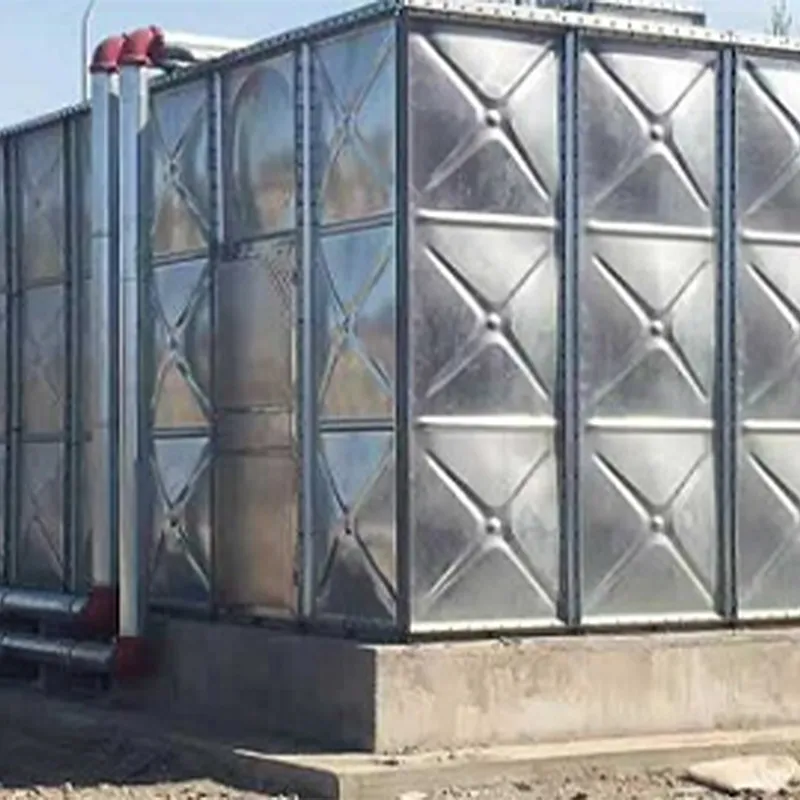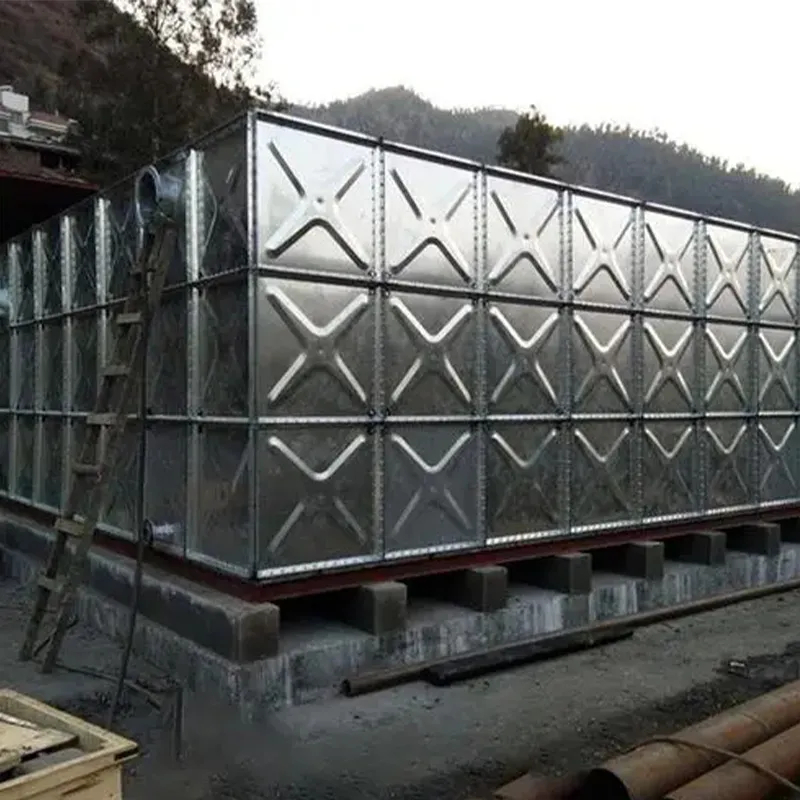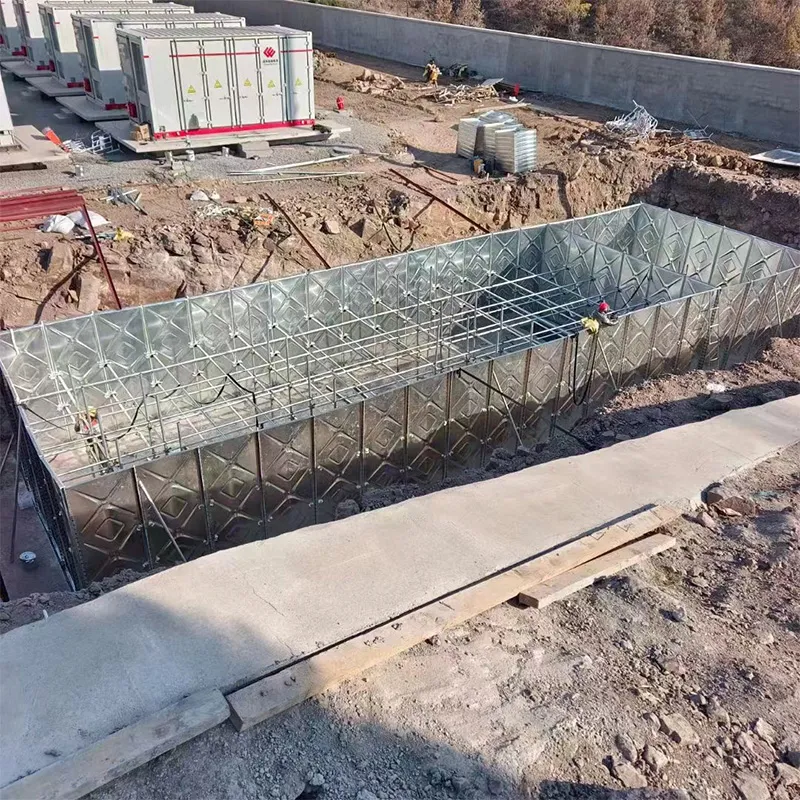loading...
- No. 9, Xingyuan South Street, Dongwaihuan Road, Zaoqiang County, Hengshui, Hebei, China
- admin@zjcomposites.com
- +86 15097380338
- Welcome to visit our website!
Hot Dip Galvanized Water Tank - Durable, Modular, Hygienic
Modular Square Hot-Dip Galvanized Water Tanks: A Field Report
If you’re weighing options for reliable, modular storage, the Hot Dip Galvanized Water Tank from ZJ Composites keeps popping up in spec sheets and site conversations. I’ve visited their base in No. 9, Xingyuan South Street, Dongwaihuan Road, Zaoqiang County, Hengshui, Hebei, China—and, to be honest, the operation felt practical rather than flashy: modular panels stacked by size, coating gauges on hand, installers swapping notes from last week’s job in the hills. That’s usually a good sign.

What’s happening in the market
Municipal upgrades, industrial recycling loops, and resort water security are pushing a shift to sectional tanks—faster to ship, easier to stage, less site drama. Galvanized steel remains popular because the zinc layer self-heals small scratches and, in fact, plays nicely with tight maintenance budgets. Many customers say they like knowing a local crew can bolt a system together over a long weekend.
Process flow and build quality (in plain terms)
Materials: structural steel panels (Q235B/S235JR), fasteners in HDG Grade 8.8 (stainless optional), EPDM or NR potable-grade gaskets. Methods: pickling, fluxing, and full immersion hot-dip at ≈450°C per ISO 1461; average coating thickness typically 70–120 µm (real-world use may vary with geometry). Panel edges are deburred; holes are reamed after coating to keep tolerances. On-site assembly includes torque-pattern bolting, gasket compression checks, and 24–48 h hydrostatic hold per AWWA practices. Service life? Around 25–50 years depending on ISO 9223 corrosivity category, water chemistry, and touch-up regime.

Key specifications
| Parameter | Spec (≈ / typical) |
|---|---|
| Panel module sizes | 1.0×1.0 m, 1.0×0.5 m, others on request |
| Coating standard | ISO 1461 hot-dip galvanized, 70–120 µm avg |
| Capacity range | ≈1 m³ to 5,000 m³+ |
| Design head/pressure | Up to ≈100–150 kPa (site-dependent) |
| Gasket/liner | EPDM potable grade; optional internal coating for aggressive water |
| Cert pathway | NSF/ANSI 61 contact materials (where applicable) |
| Testing | Hydrostatic hold 24–48 h; coating thickness gauge; holiday checks |
Where it’s used (and why)
Drinking water, fire reserve (NFPA-driven capacities), process make-up, irrigation, hotel resorts, mining camps, even remote schools. The modularity means you can get panels up the last mile in a pickup—surprisingly helpful when a crane can’t make the final slope. A Hot Dip Galvanized Water Tank also tolerates UV and temperature swings without babying.
Vendor comparison (indicative)
| Criteria | ZJ Composites | Vendor B (low-cost) | Vendor C (FRP-only) |
|---|---|---|---|
| Coating thickness | 70–120 µm avg | 40–80 µm avg | N/A (resin-based) |
| Potable pathway | NSF/ANSI 61 materials | Unclear | Depends on resin |
| Install time | Fast (modular crew) | Variable | Fast, but thermal limits |
| Service life | 25–50 yrs (site-dependent) | 15–30 yrs | 20–30 yrs |
| Warranty | Competitive, documented | Basic | Limited |
Customization and options
Heights by course count; internal tie-rods or external bracing; manways, ladders, level gauges, SS fasteners in coastal areas; epoxy topcoat for aggressive chemistry; seismic anchorage per local code. ZJ Composites designs, manufactures, and installs underground, ground-level, elevated, and sectional configurations—nice breadth for one vendor.

Field notes and feedback
Case A: 400 m³ fire tank at a food plant—installed in 4 days with a five-person crew; hydro hold passed first time. Case B: 150 m³ hilltop resort tank; panels mule-packed the last 300 m—no helicopter required. One facility manager told me, “Assembly felt like grown-up Meccano; the gasket sealing was the only part we triple-checked.”
Compliance snapshot
Typical references: ISO 1461 for galvanizing, AWWA D103 for bolted tanks, NSF/ANSI 61 for potable contact materials, ISO 9223 for site corrosivity. Ask for coating-thickness logs and hydrostatic test records—good vendors provide both without blinking.
References:
1) ISO 1461: Hot dip galvanized coatings on fabricated iron and steel articles.
2) AWWA D103: Factory-Coated Bolted Carbon Steel Tanks for Water Storage.
3) NSF/ANSI/CAN 61: Drinking Water System Components—Health Effects.
4) ISO 9223: Corrosion of metals and alloys—Corrosivity of atmospheres.
-
Revolutionizing Industrial Safety with ZJ Composites' Mini Mesh GratingNewsNov.14,2025
-
Premium FRP Profiles and FRP Grating Revolution for Global WholesalersNewsNov.14,2025
-
Ultimate Strength with ZJ Composites FRP Profiles for Wholesale SuccessNewsNov.14,2025
-
ZJ Composites Covered Grating – The Durable Flooring Solution for Smarter Industrial SpacesNewsNov.14,2025
-
Mini Mesh Grating Enhancing Strength and Style in Every ProjectNewsNov.14,2025
-
FRP Pressure Vessels by ZJ CompositesNewsNov.14,2025
-
Transforming Industrial Spaces with Advanced Frp GratingNewsNov.11,2025
